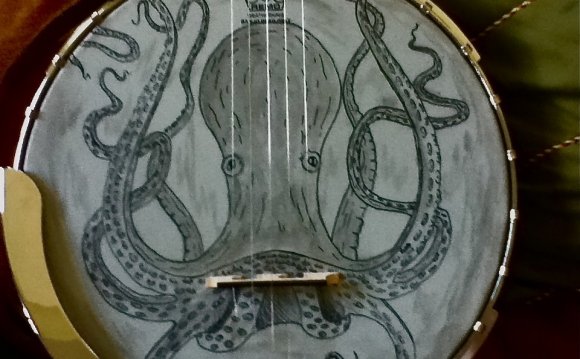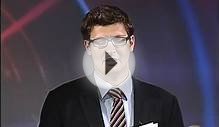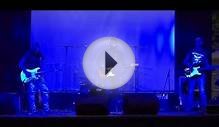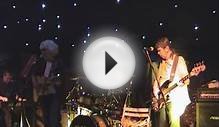
Until recently there has been no good documentation neither of the German folk music revival in East and West nor of the role of the political song during the GDR times. Now in the year 2000, ten years after the German reunification, three interesting CD documentations have been released: While Pläne Records released two CDs with live recordings of the legendary "Festival des politischen Liedes" (Festival of political song) in the German Democratic Republic (GDR) from the seventies and eighties, BMG offers a long overdue CD sampler representing the German folk revival between 1950 and 2000, in Eastern and Western Germany. As all three CDs are important documents of German folk music history, FolkWorld gives away five packages with all three of these CDs.
German folkies are often asked by foreigners what the German folk song is like. And the answer is always not too easy. It is difficult to describe that you have learnt traditional German "Volkslieder" (folk songs) in school, but that these songs are not what the German folk scene would call "folk songs". These first named "Volkslieder" are usually very unpopular in the folk scene. So what is the difference between "Volksliedern" and German "folk songs"? Maybe you know more after having read this article.
Just like the folk revivals in most European countries, the main influence for the German folk scene came from the USA and their protest folk singers of the 60s. Yet younger people in Germany had problems to use German "Volksmusik": Most of the common "Volkslieder", popularised by organised cultivation and sung in choirs and still today regularly represented in poor, but popular radio and TV shows, reflected only a happy and sound world, but did not reflect the real folk. The Third Reich had misused many of these songs. For young people these songs were and still are highly unattractive.
Following the '68 student revolution in Western Germany, Germany saw the rise of the different folk song: Critical political songs, songs reflecting the sorrows and real life of the folk. These songs were partly traditional, partly newly written.
In Eastern Germany the folk revival started only in the mid 70s. Folk songs had an important position not only music-wise, but even more as a medium of hidden protest. Folk musicians could pack their feelings and thoughts into folk songs. When a folk band would sing a traditional emigration song of the 19th century, they would officially present it as a documentation of the poverty of the last century, but normal folk would directly know the relation to the governmental prohibition to travel out of the country. Yet it was not in the first place a political protest scene, folk music was more a medium to express the feelings just to make the life more enjoyable.
Among the songs used by folk musicians in both East and West were democratic and anti-war songs. These songs found attention since the 50s, when a big documentation of "German folk songs with democratic character" of the last six centuries was published by Wolfgang Steinitz in the GDR. This collection, called later the "Steinitz", was discovered first in Western Germany, later also in the East.
Other popular folk songs were emigration songs of the 19th century and songs of trade apprentices. Important elements of the German folk scene have always been the traditions of Germany's regions, and some of the best German folk bands represent their own destinctive regional style. A further element is folk dancing, having still today an important part in the folk music scene.
All these different elements are represented on the CD "Volksmusik in Jeans - Folkmusik-Revival", a great selection of 23 songs and tunes from the last 50 years of the German folk scene. 10 years after the reunification it was overdue to compile a sampler representing the history of the folk scene in both East and West, and you will soon here on this album that both scenes have never been too different, although they have had very different political and social surroundings.
Political songs had a major forum in Eastern Germany: The "Festival des politischen Liedes", a festival for political songs that took place every year between 1970 and 1990 in East Berlin. The festival was founded and until 1980 also organised by the FDJ, the Eastern German official youth association. Each year between 50 and 80 bands and musicians from about 30 different countries came to present political songs as well as folk and world music with a political touch.
It was one of the few "windows" to the big wide world, a chance to see many international bands and musicians, to get a bit of the flair of cultures from foreign countries where normal Eatern German folk was not allowed to go to, of internationalism. For young people this festival was a highlight of the year: "The festival broke with the every day life of the GDR. Nights without closing times. Political Carnival. Exceptional situations. Conjugal crisises. Moments of falling in love. New unexpected lyrics and melodies. Different views of the world. Different people that you would otherwise never had met." This is how Hans-Eckart Wenzel remembers the festivals. He reminds that tickets for the festival were always short, and a lot of people had to stay outside.
The list of international and Eastern and Western German singers and musicians that have played over the years at this festival is impressive. The broad mixture of different music from different countries along with the caught atmosphere is represented on the two CDs now published by Pläne Records.
There are songs of the Sands Family from Northern Ireland who have toured the GDR regularly since 1974, having been an important influence for the development of the Eastern folk revival. Among the interantional guests have been the Chilenian bands Inti Illimani and Quilapayún, Kaláka from Hungary, José Alfonso from Portugal. In the eighties the musicians were even more known: Pete Seeger, Perry Friedman, Bruce Cockburn, Billy Bragg, Mercedes Sosa, Dick Gaughan. And and and.
Then the German singers and bands - from the East people like Gerhard Gundermann, Oktoberclub, Schicht, Wacholder; from the West Hannes Wader, Dieter Süverkrüp, Franz Joself Degenhardt.
The glorious days of the festival ended with the end of the GDR, losing with the German reunification its function and political infrastructure. In 2000 the Festival celebrated nevertheless its 30th birthday, with a new festival last February and the release of the two CDs with recordings from the festivals in the 70s and 80s.
RELATED VIDEO












